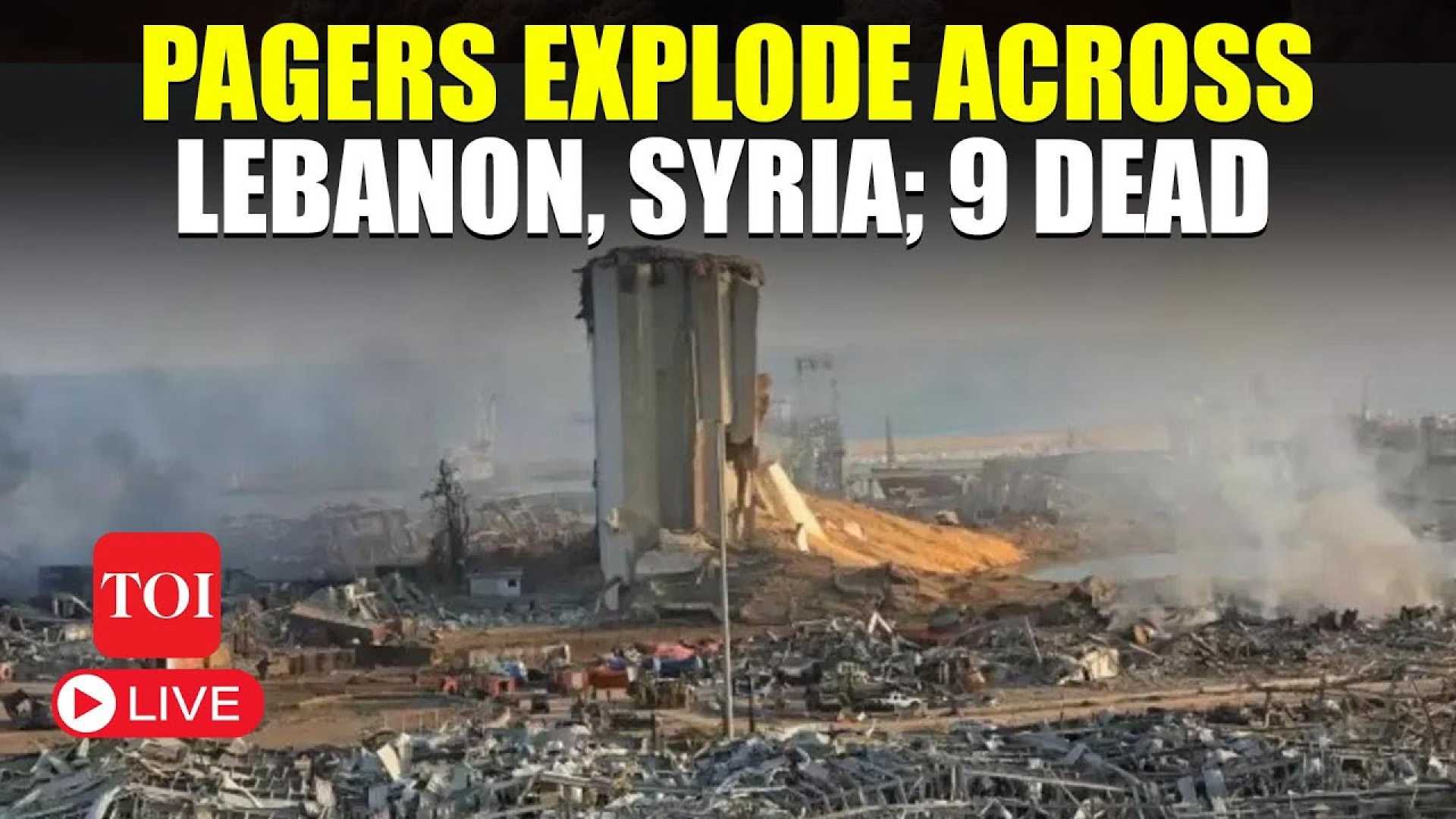News
Hezbollah Pagers Detonate in Lebanon: Thousands Injured

In a highly unusual and unprecedented event, electronic pagers belonging to the Lebanese militant group Hezbollah exploded simultaneously across Lebanon, resulting in nine fatalities and approximately 2,800 injuries. The incident occurred on Tuesday afternoon, raising fears of an escalation in tensions between Israel and Hezbollah. Both Lebanese government officials and Hezbollah have accused Israel of orchestrating the attack.
Lawmaker Hezbollah released a statement declaring, “After examining all the facts, available data, and information about the heinous attack that took place this afternoon, we hold the Israeli enemy fully responsible for this criminal aggression.” Meanwhile, a U.S. official, who wished to remain anonymous, suggested that Israel had informed the U.S. of its involvement in the incident post facto.
The explosions primarily affected Beirut‘s southern suburbs, a Hezbollah stronghold, but also caused injuries in other regions of Lebanon. Videos shared on social media show individuals engaging in daily activities being abruptly knocked down by the explosions. The chaotic scene led to hospitals being overwhelmed with casualties, leading to a declaration of medical emergency by Lebanon’s Ministry of Public Health.
No immediate explanation was offered regarding how the attack was orchestrated. Some online discussions pointed to the possibility of a hack involving the overheating of batteries. However, Trevor Ball, a former U.S. Army technician, opined that the pagers likely contained small amounts of explosive material that were remotely triggered. This indicates a compromise in the pager supply chain.
The pagers were reportedly imported by Hezbollah as a secure alternative to mobile phones, exploiting the assumption that pagers were less susceptible to hacking by Israel’s security services. Reports highlight that these devices were recently imported and were intended for disseminating information concerning potential Israeli threats.
Israel’s military did not comment on the incident, but this tactic aligns with their history of tech-related operations. The tumultuous developments come amid already heightened tensions between Israel and Hezbollah, which have been exchanging fire since a Hamas-led attack on southern Israel last year.
In an unexpected twist, Gold Apollo, a Taiwanese company, was drawn into the situation. Although their brand appeared on remnants of the exploded pagers, the company claimed the pagers were manufactured by a European entity called BAC. BAC had purchased branding rights from Gold Apollo, distancing the Taiwanese company from direct involvement in the design or production of the devices.
Hezbollah officials described the incident as the group’s biggest security breach since ongoing hostilities erupted, leaving the organization in shock. The nature of the attack points to a deeply embedded infiltration of Hezbollah, signaling a notable advance in Israeli intelligence capabilities.
The occurrence adds a complex layer to the already fraught relationship between Israel and Hezbollah, with potential repercussions for regional stability. Both sides have avoided escalating into a full-scale war, mindful of significant domestic and geopolitical consequences.












